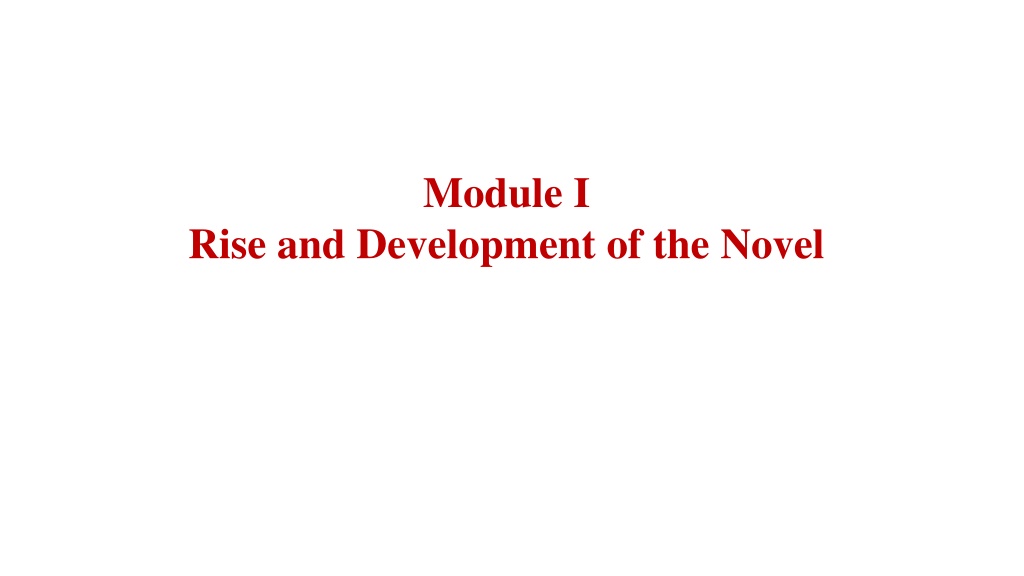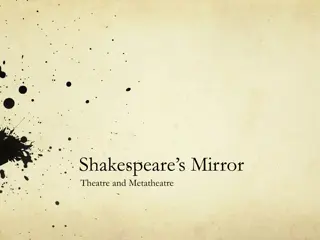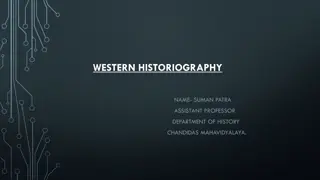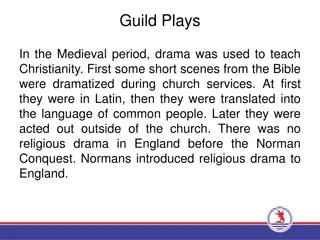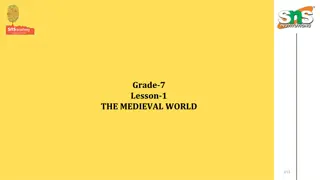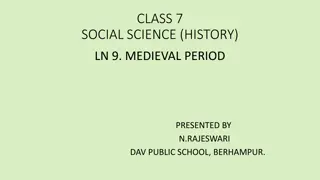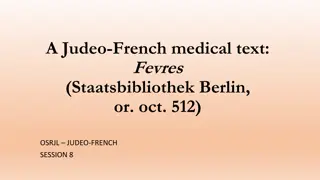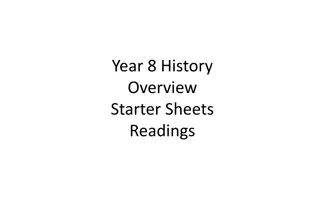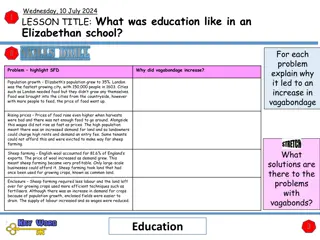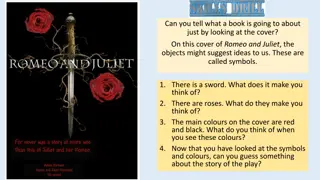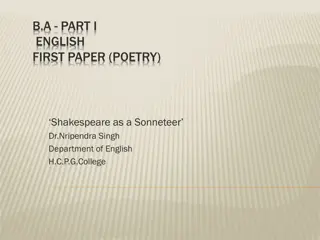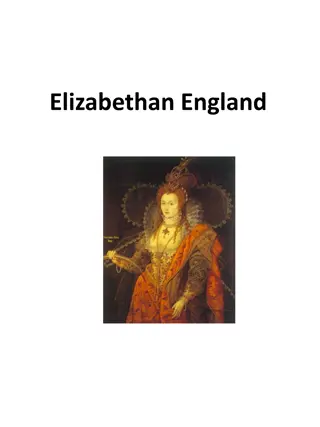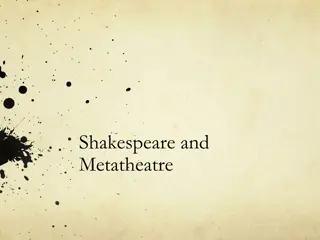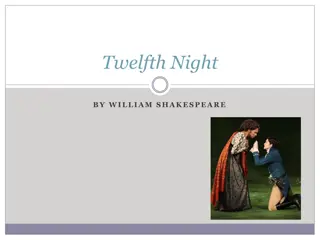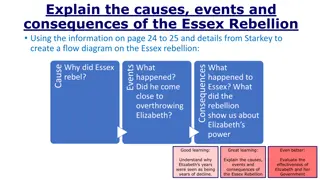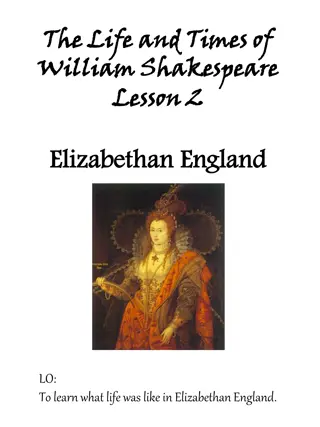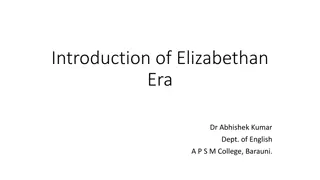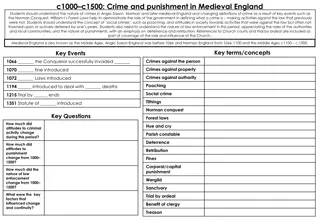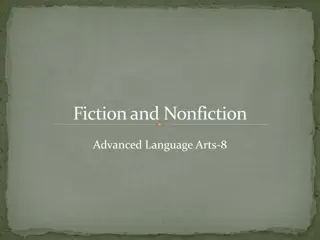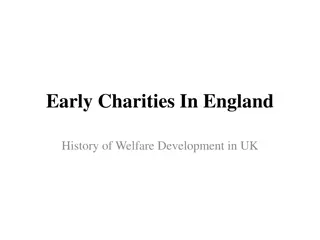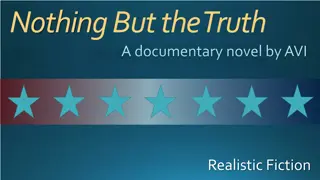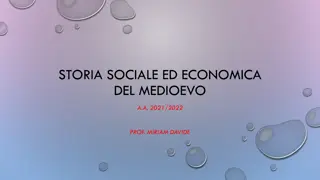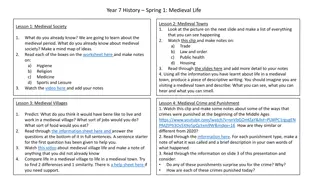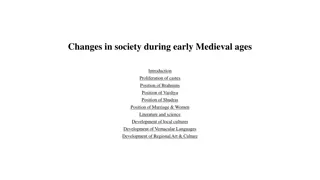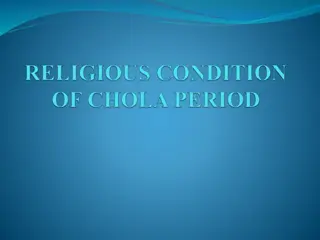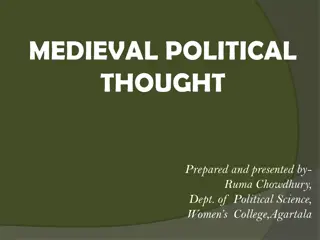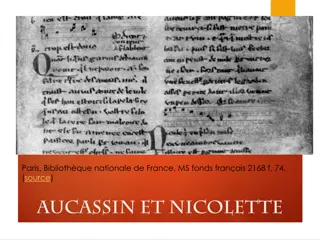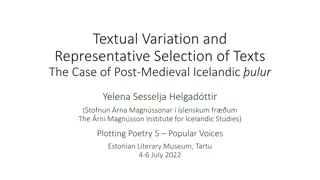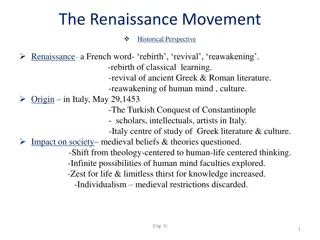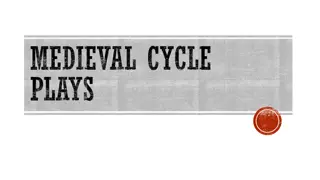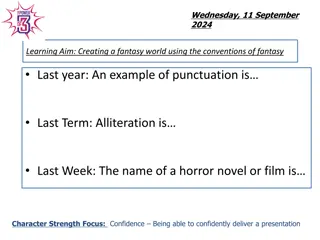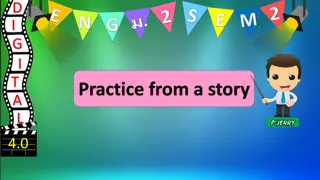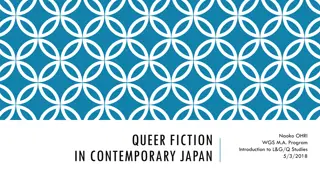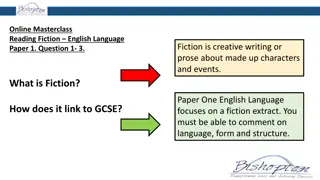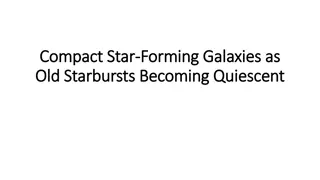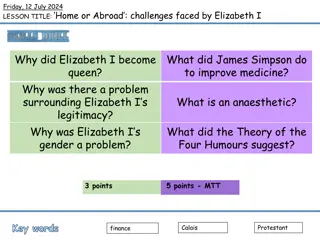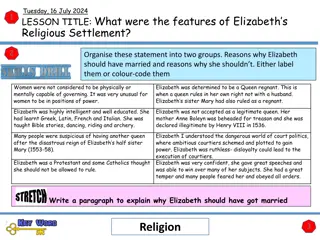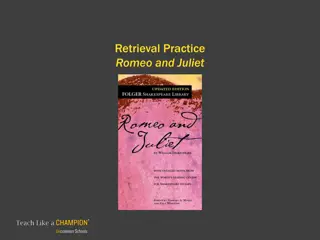Evolution of the Novel: From Medieval Romances to Elizabethan Fiction
The evolution of the novel traces back to the Medieval period with the rise of Anglo-Norman romances and the foundation of English prose. The transition through the 15th and 16th centuries saw the emergence of notable works by authors like Chaucer, Caxton, Sidney, and Milton, shaping the novel into a diverse form of storytelling with influences from various literary traditions.
Download Presentation

Please find below an Image/Link to download the presentation.
The content on the website is provided AS IS for your information and personal use only. It may not be sold, licensed, or shared on other websites without obtaining consent from the author. Download presentation by click this link. If you encounter any issues during the download, it is possible that the publisher has removed the file from their server.
E N D
Presentation Transcript
Module I Rise and Development of the Novel
The Shorter Oxford Dictionary defines novel as a Fictitious prose narrative of considerable length. Prior to the term novel , the term romance described any longer narrative particularly involving adventure and love. The term novella means a shorter novel
Anglo Norman Period 1066- 1204 11th 13th Century Medieval English romances - French in Origin Written in Verse Form Works of Chivalry Marvellous Thrilling, Extravagant Adventures of Medieval Heroes and Knights
The English Period 1346 to 1400 (14th 15th Century) The Age Witnessed The foundation of English Prose Style Writers: Wycliff, Mandeville, Malory Chaucer: Works Contain the Seeds of Novel Masterpiece The Canterbury Tales Social Chronicler of the late 14th century England in Verse Form Prologue to The Canterbury Tales - Prologue to the Modern Fiction Troilus and Criseda
15th Century Seed Time For Literature William Caxton The First English Printer Translations of French Texts Chaucer and Malory Marory sMorte D Arthur
The Age of Elizabeth : 1550 - 1630 Influence of the Medieval Romances Age of Variety of Fiction Arthurian Romances Moralised Stories of Gower Highly Finished Tales of Chaucer Italian Pastoral Romances
The Age of Elizabeth : 1550 1630 Cont. Prominent Writers: John Lyly : Eupheus Eupheuism Robert Greene: Pandosto - Moral Tone Thomas Lodge: Rosalynde - Pastoral Novel Sir Philip Sidney: Arcadia - Pastoral Romance Thomas Nash: Unfortunate Traveller , The Life of Jack Wilton - Picaresque Novels Thomas Deloney: Jack of Newbury , The Gentle Craft Realistic Tales
Age of Milton 1630 - 1660 Decline in Literature Due to the Influence of Puritanism
Age of Dryden (Age of Restoration) 1660 - 1700 End of the Reign of Elizabeth Zenith of English Drama & End of First Period of the English Novel English Fiction takes a New Turn Due to Growing Interest in Science, the people preferred Realism Rejected False Romance Emphasis on historical Truth / Poetic Truth
Age of Dryden (Age of Restoration) 1660 1700 Cont . John Bunyan: The First Great Writer of the 17th C Paved the Way for Realism Thrust : Instruction Journey towards Salvation The Pilgrims Progress 1678 Allegory Moral Story Clever Satire on the Eternal Human Follies. Aphra Behn : Oroonoko / The Royal Slave (Romance) Cervantes : Don Quixote
Eighteenth Century Emergence of Novel as a Form of Literature Novel attained Maturity Four Wheels of Novel: Samuel Richardson, Henry Fielding, Smollett and Stern
Factors Responsible for the Rise of the Novel Influence of Pilgrim s Progress Industrial Revolution Decline of Drama , Romances Rise of Middle Class Emergence of New Reading Public Upper and Middle Class Rise of Democratic Government Circulating Libraries
Pioneers of Novel Daniel Defoe: Introduced New Technique in Realism + Morality Robinson Crusoe ( 1719) Considered to the First Modern Novel Mall Flanders (1722) Samuel Richardson : Epistolary and Sentimental Novel Pamela or Virtue Rewarded (1740) Henry Fielding: Influence of Picaresque Novel Popularised Realism, Characterisation, Craftmanship Joseph Andrews (1749) , Tom Jones (1742) Shamela Parody on Ricardson's Pamela Criticism on Hypocritical Morality Laid Foundation for Comic Epic Novels
Pioneers of Novel Cont Tobias Smollett: Satirical Writing The Adventures of Roderick Random Picaresque Novel Lawrence Stern: Experimentation in Novel Writing Flashback Non Linear Narrative Technique Life and Opinions of Tristram Shandy Jonathan Swift: Known for Satire and Allegory A Tale of a Tub (1704) Gulliver s Travels (1726)
Key Elements of Eighteenth Century Novels: Realistic Novels Instruments to Explore and Represent The Reality of the Society Use of First Person Narrative Characters Ordinary men and Women Familiar Setting Middle Class People Purpose Promotion of Virtuous Characters Use of Satire and Allegory Reveal Vices of the Society
Nineteenth Century Novels: Return to The Nature Emphasis Imaginations & Emotions Revival of Medieval Romances Novel of Manners : Jane Austen Novels Centred Around Customs, Values, and Mores of the late 18th Century Society Pride and Prejudice ( 1796) Sense and Sensibility ( 1797), Mansfield Park (1814)
Nineteenth Century Novels Cont Historical Novels: portrayal of Remarkable Period in the Past Sir Walter Scott Ivanhoe (1820) Gothic Novels Use of Elements of Supernatural Ghosts, Tombs, dilapidated castles, etc. Horace Walpole : Castle of Otranto ( 1764) Emily Bronte : Wuthering Heights
Nineteenth Century Novels Cont Regional Novels: Presentation of Recognisable Region Thomas Hardy Wessex - Tess of d Urberville, Mayor of Casterbridge Charles Dickens London R. K. Narayan - Malgudi Stream of Consciousness Novels : Influence Sigmund Freud's Psychoanalytical Theory James Joyce Ulysses (1922) Virginia Woolf To the Lighthouse (1927) Use of Interior Monologue Bildungsroman Novels Stages of Growth of the Protagonist
Modernist literature: After 1945 A sense of loss is one of the features of Modernist literature. Post Modernist Novels : Novels written after 1945 Postcolonial literature is a literature by writers from former colonised countries.
